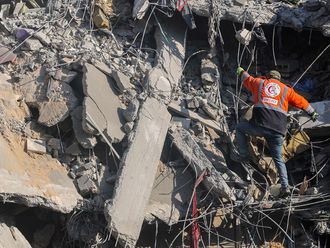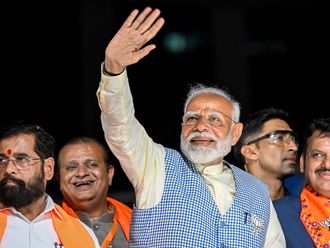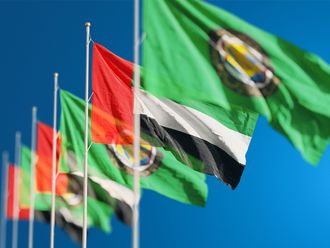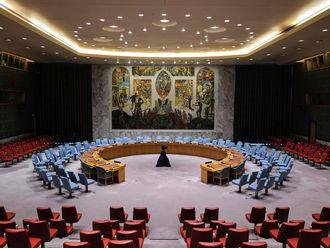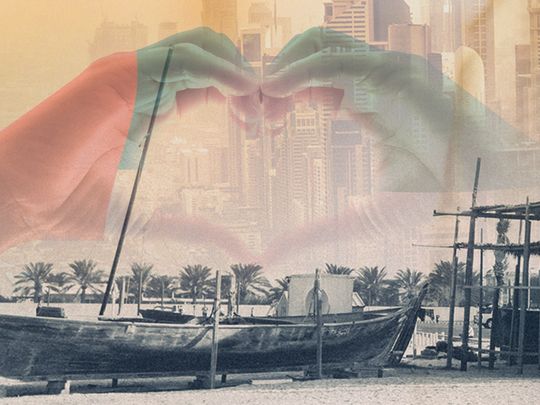
- The location of the UAE continues to play a critical role in entrenching the values of acceptance and openness.
- Pre-oil economic activities like fishing, raising livestock and pearling helped strengthen cooperation and solidarity among people.
- Mechanisms to settle disputes among traditional tribal society played an important role in enhancing the values of tolerance.
- The principle of tolerance was instrumental in overcoming disagreement, as well as fostering a unification of positions and aims.
- The idea of unity has always been present in UAE history. There can be no separation between unity and tolerance.
Going back to the past, to roots and origins, helps us understand many features of societies, whether political, economic, social or cultural. It helps us understand the nature of people, as well as the value system they adopt and the views they hold of themselves and others. Religion, or sacred belief, has undoubtedly been a main source of identity and knowledge in all societies, civilisations and cultures throughout history. However, the national identity of any country comes from a variety of sources. Besides religion, there are historical experiences that are both positive and negative, the influence of geographic location, the nature of economic activity, the pattern of social relations, and additional factors that are essential in gaining an understanding of a society, at any place and time.
If we seek to apply this general framework to the UAE, in order to understand tolerance as a key feature of its national character, we should answer several key questions. These questions preoccupy many around the world, and particularly those outside the Gulf states and Arab region. One of the most pressing questions is: why is the UAE renowned for embracing, practising and calling for tolerance, to the extent that it has become a global icon of tolerance, while being part of a region plagued by religious and sectarian conflict, where abhorrent manifestations of hatred, fanaticism and radicalism persist? Is it a coincidence that more than 200 nationalities, combining various cultures, ideologies, religions, ethnicities and beliefs, enjoy an unparalleled environment of coexistence in the UAE, without instigating social, cultural or religious tension?
Coincidence?
Is it a coincidence that the UAE is the only Gulf country to have been visited by Pope Francis and the Grand Imam of Al Azhar when they signed the Human Fraternity Document, or that it is the most tolerant country regarding non-Muslim places of worship in the Arabian Gulf region? Is it a coincidence that the UAE embodies the most tolerance through the words and actions of its leadership, or that it ranks first globally in official development aid, in proportion to its national income (1.31 per cent, whereas the global percentage set by the United Nations is 0.7 per cent)? Is it also a coincidence that UAE humanitarian aid has reached all countries of the world, from east to west, irrespective of religious, ethnic or ideological considerations, in an exceptional manifestation of the humanitarian meaning of tolerance?
To answer these questions, we should delve into the roots of tolerance within UAE society, which reach far back in history and spans multiple elements and sources. Geography played a role, as did the economic activity specific to the UAE, while the nature of social relations and interactions with different religions and belief systems also had an impact. The role of leadership and the adoption of its directions and values was also important, as well as a range of other considerations that together constitute a central frame of reference to understand how tolerance evolved in the UAE.
The values of tolerance the UAE adopts are not new in its history. These values are the very foundation of the UAE’s approach to peace, development and stability, and underpin the way in which it tackles terrorism, extremism, intolerance and hatred worldwide
Undoubtedly, the geographic location of the UAE played, and continues to play, a significant and critical role in entrenching the values of acceptance and openness, regardless of race, religion or belief. The UAE’s location saw it become a historic trade route between east and west, and a major interface between countries, civilisations and cultures. Through trade, the people of the UAE met many people from different backgrounds. UAE citizens, in turn, travelled to neighbouring countries for trade, employment and educational purposes, enhancing their knowledge of the surrounding world with all its diversity in culture, beliefs and values. Because of its geographic location, the UAE has long been in constant contact with people from all over the world. Consequently, UAE society acquired the features of open societies that tolerate and coexist with one another, regardless of differences, and believe in diversity as a natural and positive aspect of life. This is in contrast to closed or geographically confined societies that often find it difficult to accept and coexist with those who embrace different values and beliefs.
Besides geographic location, one of the factors that helped consolidate tolerance in UAE society was the nature of pre-oil economic activity, which was mainly based on fishing, raising livestock and pearling. These activities contributed to strengthening cooperation and solidarity within society, as well as promoting tolerance and acceptance among people. For example, pearl divers were required to traverse the waters of the Arabian Gulf for months. During these periods, the men aboard the boats had to act as one coherent, collaborative and tolerant team in the face of hardship, adversity and unpredictable conditions. Without the cooperation of all on-board, the perilous voyages would have failed, but instead, pearl diving fostered the notion of a common destiny. In an environment fraught with serious threats, this shared destiny could only be assured by renouncing animosity and hatred, and by spreading love, tolerance and team spirit.
During the long absences of the men who left on the pearling boats, values of brotherhood, solidarity and tolerance prevailed among those at home. As they managed the burdens and demands of daily life, over time, these values became deeply rooted within UAE society until they became a fundamental point of reference in relations with all people.
UAE society first experienced diversity in beliefs, denominations and religions a long time ago. This was clearly evidenced by the archeological excavations on Sir Bani Yas Island in 1992. The discoveries revealed that the island was home to the oldest Christian church and monastery in the area, dating back to the period between the 7th and 8th centuries AD. This may explain UAE citizens’ remarkable ability to accept diversity and their tendency toward moderation, centrism and acceptance. The discovery of the monastery brought conclusive evidence of the coexistence that has long prevailed here between Christians and Muslims. It is a coexistence also embodied in the words and deeds of the late Shaikh Zayed Bin Sultan Al Nahyan, and the UAE leadership, over many years.
‘Tolerance is a duty’
There is no doubt that mechanisms employed to settle disputes among traditional tribal society also played an important role in enhancing the values of tolerance in Emirati culture. These dispute resolution strategies included the use of mediation, compromise, wisdom and drawing on a rich source of moral values that characterised desert society. Resolutions were only possible because of an existing framework that allowed for mutual concession, forgiveness, overcoming animosity, granting clemency instead of retaliation, and many more noble moral values. These values are deep-rooted in the hearts of the UAE sons and daughters, passed down from one generation to another. In this context, the late Shaikh Zayed Bin Sultan Al Nahyan had a wonderful, profound saying. It exemplifies how tolerance was the overriding principle governing dispute resolution and settlement in UAE society. He said: “Tolerance is a duty. If God the Greatest, the Almighty Creator, is forgiving, we human beings are all brothers. The righteous is our brother and the sinner is our brother. We don’t abandon the sinner nor do we desert him, instead, we should rescue and support him until he is back on the right path.’’
The UAE Federation was founded in 1971 on the principle of tolerance. This principle was instrumental in overcoming disagreement, as well as fostering a unification of positions and aims. Some of the border disputes between the emirates prior to the UAE Federation were settled by adopting a tolerant approach to relations. This environment of tolerance and overcoming differences laid the foundations for the UAE Federation, which was given a greater prominence than any other goal or endeavour. As I said in my earlier article, United Arab Emirates: A Global Capital of Tolerance, published in March 2019, the late Shaikh Zayed Bin Sultan Al Nahyan set the best example when he was asked during unification negotiations, ‘what concessions has Abu Dhabi made to its fellow emirates for the sake of unity? What sacrifices will be offered in the future to achieve unity?’ He replied, ‘we do not call them concessions, but obligations of a brother to his brother. What we offer in the future we do not call sacrifices, but a brother or friend’s cooperation with his friend because we are convinced that we share the same hopes, pains, and common destiny’.
The idea of unity, which has defined the UAE since the dawn of history, represents the other face of tolerance. The late Shaikh Zayed gave expression to the strong bond between unity and tolerance in the profound phrase, “without tolerance there has neither been friendship nor brotherhood”. He is telling us that without tolerance, people would always have failed to agree on, or unite around, a common aim. Although the late Shaikh Zayed is the pioneer of unified thought in the UAE and the entire Arab region, unity has always been clearly present in UAE history, dating back to ancient times. Shaikh Zayed’s grandfather, Shaikh Zayed the First (1836-1909), was an early advocate of unity among the tribes of the region, calling for people to abandon all forms of dispute, disagreement and conflict that had characterised Bedouin life. We can conclude then, that the idea of unity has always been present in UAE history. This means the values of tolerance also go hand in hand with this history, because there can be no separation between unity and tolerance.
In this context, it can be said that the values of tolerance the UAE adopts are not new in its history. These values are the very foundation of the UAE’s approach to peace, development and stability, and underpin the way in which it tackles terrorism, extremism, intolerance and hatred worldwide. They are deep-rooted in our nation’s history; permanent values at the heart of UAE policy that represent shared virtues between the leadership and people.
Dr Jamal Sanad Al Suwaidi is a UAE author and director-general of the Emirates Centre for Strategic Studies and Research.


